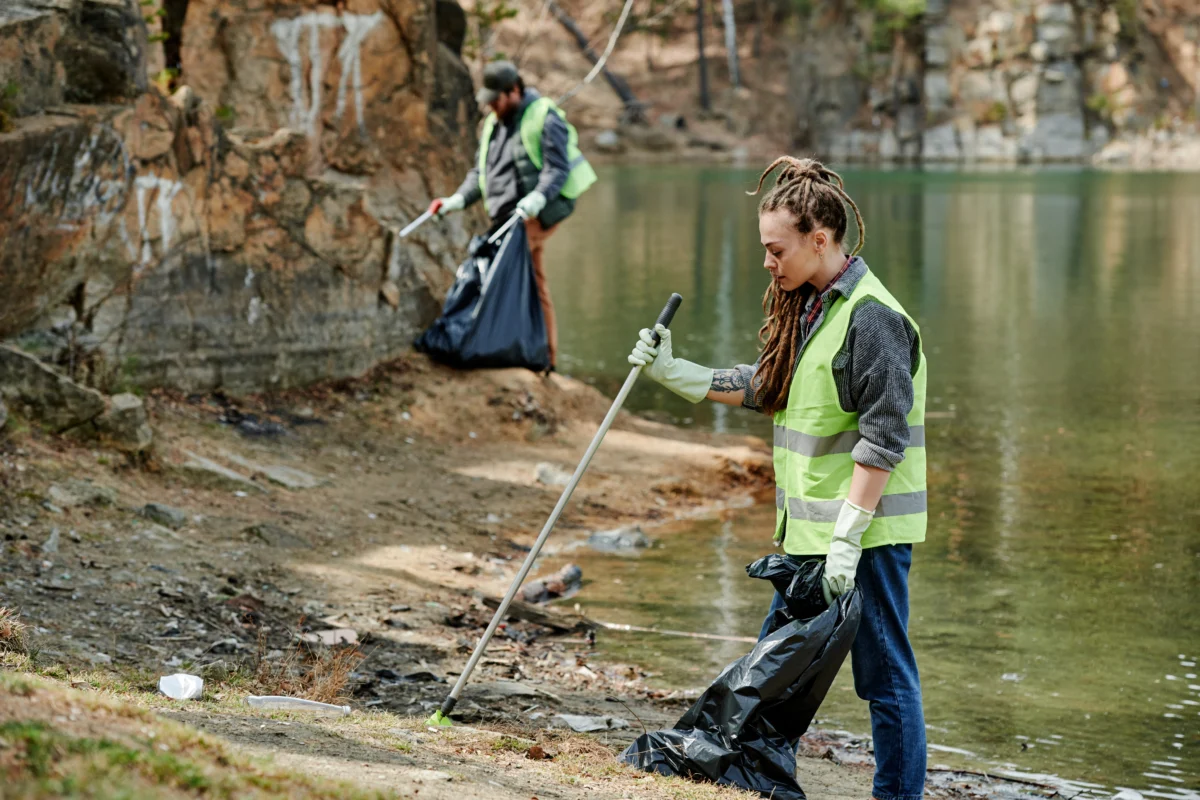If you’ve recently been arrested or convicted for driving under the influence, one of the first consequences you’ll likely face is community service. In Texas, community service isn’t just a slap on the wrist—it’s a mandated and structured component of DUI sentencing. That’s why understanding the Texas DUI community service requirements is essential if you want to navigate your case responsibly and avoid additional penalties.
In Texas DUI Community Service Requirements Explained, we’re going to walk through everything you need to know about this obligation: how many hours are required, what kind of service qualifies, where to report, and what happens if you fail to complete it. We’ll also share real-life stories that show just how seriously Texas courts take DUI-related community service—and how people have either completed it successfully or made their situations worse by underestimating it.

What Is Community Service in a Texas DUI Case?
It’s More Than Just Picking Up Trash
Community service is a court-ordered sanction that requires DUI offenders to volunteer a set number of hours to non-profit or government organizations. Unlike fines or jail time, community service aims to give back to the community harmed by the offense. But don’t let the term “service” mislead you—it’s a legal punishment, and the state tracks it closely.
In the context of a DUI (also referred to as DWI in Texas), community service requirements are not optional. Texas law mandates that judges include community service as part of sentencing—even for first-time offenders. This requirement exists to create both accountability and public safety awareness.
Why Does Texas Require Community Service for DUI?
Rehabilitation Meets Restitution
The rationale behind Texas DUI community service requirements is twofold. First, it’s meant to be a rehabilitative effort—helping offenders reflect on their choices while contributing positively to their communities. Second, it’s about restitution. Driving under the influence puts others at risk, and community service is seen as a form of giving back.
From working at local food banks to cleaning highways or volunteering with non-profits, DUI community service is designed to be both productive and humbling. The state views it as a meaningful alternative to incarceration, especially for those with no prior record.
But don’t be fooled—failing to complete these hours can lead to jail time, additional fines, or probation violations.
Real-Life Example: Marco’s Wake-Up Call
Marco, a 26-year-old delivery driver from Dallas, got pulled over one night after two beers and a taco run. He barely tipped over the legal limit but was still arrested. As part of his sentence, the judge ordered him to complete 48 hours of community service within 90 days.
Marco assumed it wouldn’t be a big deal and didn’t take it seriously. After missing several scheduled workdays at the community pantry, the probation officer filed a non-compliance report. Marco ended up spending 10 days in jail—all because he ignored his Texas DUI community service requirements.
His story is a clear reminder: community service is a legal obligation, not a suggestion.
Texas DUI Community Service Requirements by Offense
First, Second, and Third-Time Offenders
Texas sets minimum and maximum community service hours based on how many DUI offenses are on your record. Let’s break it down.
First Offense (Class B Misdemeanor)
- Minimum: 24 hours
- Maximum: 100 hours
- Usually paired with probation, fines, and alcohol education courses

Second Offense (Class A Misdemeanor)
- Minimum: 80 hours
- Maximum: 200 hours
- Typically includes longer probation and possible jail time
Third or More Offense (Felony)
- Minimum: 160 hours
- Maximum: 600 hours
- May be in addition to prison time or extended supervision
Judges have discretion within these ranges, and the final number depends on the specifics of the case—BAC level, presence of minors in the vehicle, accident involvement, and whether injuries occurred.
What Kind of Work Qualifies as Community Service?
It’s Not Always What You Expect
Most people picture community service as picking up trash on the side of the road. While that’s one option, Texas courts approve a much wider range of service options—as long as they are unpaid and benefit the public.
Examples of approved community service:
- Volunteering at food banks or soup kitchens
- Helping at animal shelters
- Working with Habitat for Humanity
- Cleaning public parks or community buildings
- Administrative work for non-profit agencies
- Assisting at local libraries or senior centers
In some counties, you may even be allowed to do education-based service—such as speaking to students about the dangers of drunk driving, depending on your background.
However, you cannot count:
- Work for a business (even unpaid)
- Volunteering for religious services (unless public benefit is clear)
- Helping friends or family
- Anything you’re already doing as part of a paid job
How Do You Track and Report Hours?
Documentation Is Everything
Every hour of your court-ordered service must be documented and approved by your probation officer or court supervisor. This typically includes:
- A log sheet signed by a site supervisor
- Contact information for the organization
- Dates, times, and type of work performed
- Possibly a short reflection or summary of your experience
Some counties in Texas use online portals where you can upload documents and track progress, while others stick to paper logs. Either way, turning in fake hours is a crime—and courts often call to verify.
Failing to log and report properly is one of the most common mistakes DUI offenders make. Don’t be one of them.
How Long Do You Have to Complete the Hours?
Deadlines Matter
The court usually sets a deadline for completing community service, based on the total number of hours assigned. For example:
- 24–100 hours: 60–90 days
- 100–200 hours: 3–6 months
- Over 200 hours: 6–12 months or longer, often during extended probation
Your judge may be flexible, but if you’re not making steady progress, you risk a probation violation. If you fall behind, your probation officer may schedule a court hearing—and at that point, excuses won’t carry much weight.
To stay compliant with Texas DUI community service requirements, treat this like a job. Plan your service schedule just like you would your workweek, and log every hour accurately.
What Happens If You Don’t Complete Community Service?
The Consequences Are Serious
Failing to complete your assigned hours can trigger a chain of legal consequences. Here’s what might happen:
- A probation violation hearing
- Additional hours added to your total
- Fines increased
- Probation converted to jail time
- Warrants issued for non-compliance

The court doesn’t want to jail you—but if you’re non-compliant or negligent, it will. Judges take DUI sentencing seriously because the public’s safety is at stake.
If life gets in the way (illness, job loss, etc.), communicate immediately with your probation officer. Courts are far more understanding when you show honest effort and transparency.
Can You Request a Modification or Extension?
Yes—But Don’t Wait Until It’s Too Late
If you’re having trouble meeting your deadline, you may be able to request a modification or extension from the court. Valid reasons might include:
- Health issues or medical emergencies
- Job-related travel
- Caregiving responsibilities
- Transportation barriers
To apply, you’ll typically need:
- A written request or motion filed with the court
- Proof of the hardship (doctor’s notes, employer letters, etc.)
- A proposed new schedule for completing the hours
But be proactive. Waiting until after the deadline passes makes it much harder to get leniency.
Real-Life Story: Avoiding Jail Through Transparency
Lisa, a single mom from Fort Worth, was sentenced to 100 hours of DUI-related community service. A month into it, her child was hospitalized, and she fell behind. Instead of ghosting her probation officer, she submitted a request for more time—along with medical records and a revised plan.
The judge granted her an extra 30 days. She finished all her hours on time, avoided jail, and completed her probation without further issues.
This story shows how important it is to stay communicative and accountable when handling your Texas DUI community service requirements.
Tips for Completing Community Service Successfully
Make It Work for You
Here are some practical tips for getting through community service efficiently:
- Start early – Don’t wait until deadlines loom.
- Pick meaningful work – You’ll stick with it longer.
- Use your skills – If you’re good at organizing, help with admin tasks.
- Log hours in real-time – Don’t try to remember weeks later.
- Communicate proactively – Keep your probation officer informed.

Community service doesn’t have to be a nightmare. In some cases, it even becomes a meaningful part of the rehabilitation process—offering structure and purpose at a time when things feel chaotic.
Final Thoughts: Texas DUI Community Service Requirements Explained
Facing a DUI charge in Texas is no small matter, but understanding Texas DUI community service requirements puts you in a better position to comply, complete, and move forward. Whether it’s your first offense or your third, knowing the number of hours, qualifying service types, deadlines, and reporting procedures is crucial.
Community service might feel like a burden at first, but it’s also a second chance—an opportunity to take responsibility without spending time behind bars. By approaching it seriously and proactively, you can avoid setbacks, protect your record, and rebuild your life.
So, if you’re staring at a court order and wondering where to begin, take a breath and take control. Your compliance with Texas DUI community service requirements can be the difference between a successful resolution and a legal disaster.

